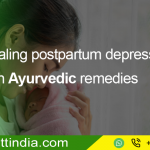Monsoon is not just a season; it’s a time when nature rejuvenates itself. Ayurveda, the ancient Indian system of medicine, acknowledges the significance of monsoon in detoxifying and revitalizing the body. As the rain pours down, Ayurvedic treatments become even more potent, offering a holistic approach to wellness. Let’s delve into what’s included in a Monsoon Ayurveda Treatment Package.
Consultation and Assessment
The journey begins with a thorough consultation and assessment by experienced Ayurvedic practitioners. They evaluate your body constitution (dosha) and health conditions to tailor the treatment accordingly. This personalized approach ensures that the treatments are effective and safe for you.
You will be interested on: Kerala Ayurveda Packages
Panchakarma Therapies
Panchakarma, the cornerstone of Ayurveda, comprises five cleansing therapies that eliminate toxins from the body. These therapies include Vamana (therapeutic vomiting), Virechana (purgation), Basti (medicated enema), Nasya (nasal administration of medicated oils), and Raktamokshana (bloodletting). Under the guidance of skilled therapists, these treatments are administered to restore balance and harmony in the body.
Abhyanga (Ayurvedic Massage)
Abhyanga, a traditional Ayurvedic massage, involves the application of warm herbal oils infused with medicinal herbs. This therapeutic massage not only relaxes the muscles but also nourishes the skin, improves blood circulation, and promotes detoxification. It is an integral part of the Monsoon Ayurveda Treatment Package, helping to enhance the overall well-being.
Swedana (Herbal Steam Therapy)
Swedana, or herbal steam therapy, is often combined with Abhyanga to amplify its benefits. The steam generated from herbal decoctions opens up the pores, allowing the herbal oils to penetrate deeply into the tissues. This aids in the elimination of toxins, relieves stiffness, and induces a profound sense of relaxation.
Keep reading: Kerala Ayurvedic Treatment
Shirodhara
Shirodhara is a therapeutic technique where a continuous stream of warm herbal oil is gently poured onto the forehead (third eye region). This profoundly calming procedure soothes the nervous system, alleviates stress, and promotes mental clarity. It is particularly beneficial during the monsoon season when the mind and body tend to feel lethargic.
Dietary Guidance
Ayurveda emphasizes the importance of diet in maintaining health and well-being. As part of the Monsoon Ayurveda Treatment Package, you will receive personalized dietary recommendations based on your body type and current health condition. These dietary guidelines aim to support the detoxification process and optimize digestion, ensuring holistic healing from within.
Yoga and Meditation
In addition to physical treatments, the Monsoon Ayurveda Treatment Package often includes yoga and meditation sessions. Yoga asanas (postures) and pranayama (breathing techniques) help to balance the doshas, strengthen the body, and calm the mind. Meditation cultivates mental resilience, enhances self-awareness, and fosters inner peace, complementing the healing journey.
You will be interested on: Kerala Ayurveda Therapy
Herbal Medications
Ayurvedic herbs play a crucial role in restoring and maintaining health. As part of the treatment package, you may be prescribed herbal medications tailored to your specific health needs. These natural remedies address imbalances at their root cause, supporting the body’s innate healing mechanisms without causing adverse effects.

In conclusion, the Monsoon Ayurveda Treatment Package offers a comprehensive approach to wellness, encompassing personalized consultations, cleansing therapies, rejuvenating massages, herbal steam therapy, Shirodhara, dietary guidance, yoga, meditation, and herbal medications. Embracing the wisdom of Ayurveda during the monsoon season can revitalize your body, mind, and spirit, allowing you to embrace the rainy days with vitality and vigor. Experience the transformative power of Ayurveda this monsoon and embark on a journey towards holistic well-being.








